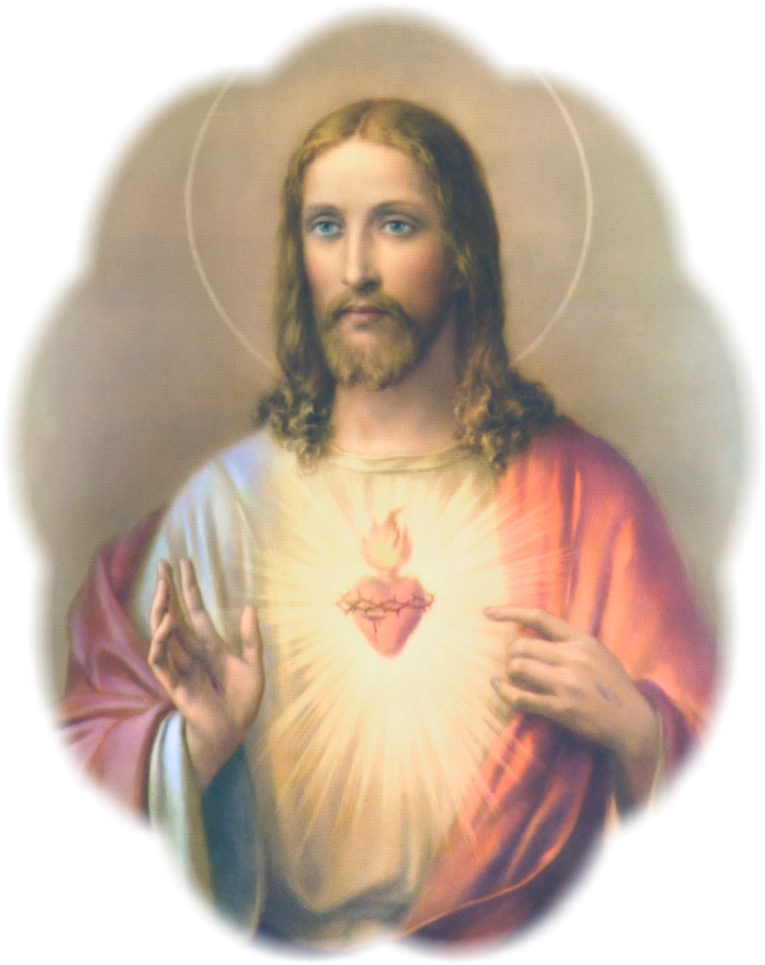
Excerpt 9 Heart of Jesus, Patient and Most Merciful |
Hidden Life
Jesus spent thirty years of His short life in the obscurity of Nazareth, earning His daily bread in the sweat of His face, while He could have enjoyed all the wealth and all the honors of the world. He could have relieved the poverty of His holy parents and of His countrymen and led them to a higher standard of living. Moreover, Nazareth was a small and insignificant town that could never attract the attention of the world. Why should Jesus spend so much time in such a place after He had come to save the world? And mankind was waiting for Him. He could have associated with the intellectual and spiritual leaders of the time; the depth and soundness of His argumentation would have convinced them of the truth of His doctrines, and the charm of His personality would have made them His enthusiastic followers. He could have had the whole world at His feet. But God's ways are not our ways. It was the will of the Father that Jesus should spend that time in obscurity, and Jesus submitted patiently and waited.
Public Life
Even more painful were the tests of patience during Jesus' public life. His activity was confined to a small and insignificant country, to a people that showed very little understanding for the kingdom of the Messias, although their whole history had prepared them for it. On the whole, the people with whom Jesus had to deal were of a materialistic, narrow, nationalistic mentality. Of course, they delighted in listening to Him, they were amazed at the greatness of His miracles, they were impressed and charmed by the goodness of His heart, and they flocked to Him and brought along their sick to be healed. But they did not grasp the deeper meaning of His doctrines and His miracles. They wanted to make Him king after the miraculous multiplication of the loaves, but before Pilate they rejected Him and called down His Blood upon themselves and their children. Even the Apostles, in spite of their close association with Jesus, showed an astounding lack of understanding for the ideas of their Master. On the eve of His Passion they quarreled among themselves about which of them would be the greatest, and on the way with Him to Mount Olivet on the day of His Ascension, they asked Him whether He would now establish His kingdom. Lastly, the leading classes of the people, the high priests, priests, and scribes, were His bitter enemies. They opposed Him at every step, spied on Him, misinterpreted His words, accused Him of breaking the law, of blasphemy, of rebellion, and even of dealings with the devil. They did not rest until they saw Him on the Cross and, as they thought, His name and work ruined. Yet Jesus bore all this with endless patience, without bitterness or complaint, and continued to do good. He saw in all these disappointments and persecutions the chalice which His Father had prepared for Him.
Most Merciful
The sinner has offended God and proved himself most ungrateful; he has abused the gifts of God and dishonored his greatest benefactor. He, who was formed out of the dust of the earth and is nothing whatsoever of himself, has defied his Maker. God holds the sinner in His hands; He could annihilate him, thrust him into the abyss of Hell in the very moment in which he sins. Jesus is God, yet He does nothing of the kind. He has come to save, not to destroy. He lovingly calls the sinner to repentance, offers forgiveness, takes the punishment of sin upon Himself, and makes atonement for it in His Blood. All that has been lost through sin and much more is placed within the reach of the sinner. And the price the sinner has to pay for such unheard-of goodness is nothing but a sincere change of mind, sorrow for his sins, and amendment of life, no matter how great or how numerous his sins may have been. Such was the mercy of the Sacred Heart of Jesus while on earth, such it is now in the Sacrament of Penance, and such it will remain to the end of time, as long as there will be sinners to save. There is no limit to the mercy of the loving Heart of Jesus.
The follower of Christ must also be patient and merciful. Life is filled with many miseries; by patience we can turn them into blessings. We can be patient and merciful toward the materially and spiritually poor and miserable who surround us on every side, ungrateful and undeserving as they may often be. Our acts of patience and mercy are the keys that will open for us the treasury of the Sacred Heart of Jesus, when we stand in need of His patience and mercy.
TAKEN FROM THE LITANY OF THE SACRED HEART, Bruce Publishing
 E-MAIL
E-MAIL
HOME-------------------------------------CATHOLIC CLASSICS
www.catholictradition.org/Classics/heart-jesus9.htm